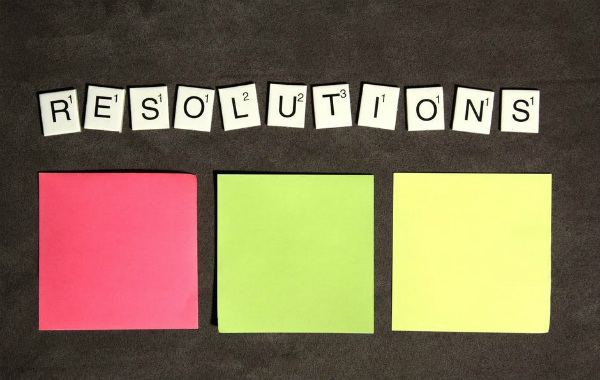
Have you kept your New Year's resolutions?
Many of us lose will power quickly. We want to change and improve. And a new year offers a fresh start. At least in theory. But maintaining will power in one of the coldest, darkest months can be tough.
If our resolutions are founded on implied criticism of ourselves , or ‘shoulds’ (‘I should be fitter/slimmer/richer/more successful..’) then the resolutions can feel like a double whammy: first we start with a negative about ourselves, then we promise to do something about it at one of the most hostile-feeling times of year.
So isn’t it just better to forget New Year resolutions and just keep on going as we are?
If you can feel grateful for the ability to do everyday things, carrying on as you are could be fine.
If, however, you have a hankering to use the New Year as a springboard for something better for yourself, read on.
Result CIC’s work to support people to feel more confident and get more from life is based on starting with your strengths. And the coaching and training work we do encourages deeper reflection. Particularly at this time of acceleration (technology, communication, change) making a little time to just quietly think can bring surprisingly useful ideas to the surface.
Taking this point, why not try the following process as a way to motivate yourself during the year?
The idea of this is almost the opposite of conventional New Year resolutions. You don’t set a fixed goal or benchmark in advance (against which it would be easy to fail). Instead you identify activities you enjoyed in the year before and look at how to incorporate more of them this year; make more time for them.
Example
Let’s suppose your thinking is normally along these lines:
‘What is ‘wrong’ and I need to do better?’
I have low energy and motivation so I must do something about that.’
‘So my New Year resolution will be to lose 4 kilos and go to the gym 4 times a week.’
A different approach would be:
‘When did I feel really good about myself last year, engrossed in an activity and lost track of time?’
The answer might be:
‘I loved dancing at Jan’s party. I haven’t done that for ages and really enjoyed it. It was also great to play with the kids/dog/cat now and then. I would like to do that more.’
So the new-look decision (not resolution) might be:
‘I want to dance more often if I can and will look out for opportunities. Plus the kids/pets decide when they want to play – so I will take those opportunities as often as I can. The to-do list can wait. Even a few minutes of play makes me feel better, more relaxed and more motivated.’
This decision uses positive words on encouragement and reminders of how the activity supports you to feel good. It’s a carrot rather than a stick. And not putting a number on how many times you ‘should’ do the activity, or how frequently, makes it less daunting than a fixed resolution.
It is interesting that often it can be one small regular and low-level change which can enable you to do more of makes you feel good. And this, rather than a dramatic shift, may have the greatest impact on how well you feel. We hope that this idea may help you to reflect and identify the area of your life which would have the biggest impact.
Why not try it out for yourself? Decide to take 15 minutes for personal reflection, try out the Self-coaching exercise below. This should help you choose your ‘Happier Me’ activity.
Wishing you a happier new year!
Download our self coaching exercise using this link:
self_coaching_handout_170719.pdf